All posts by Edmund Dickinson
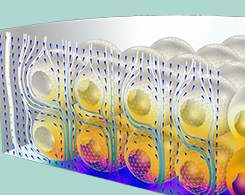
Modeling Adsorption at Surfaces in COMSOL Multiphysics®
What is adsorption? Learn the theory behind this chemical engineering phenomenon as well as how to model the process at surfaces in the COMSOL® software.

Model Deforming Objects with the Arbitrary Lagrangian-Eulerian Method
The combined efforts of Leonhard Euler and Joseph-Louis Lagrange inspired the arbitrary Lagrangian-Eulerian (ALE) method, which we can use to model deforming objects.
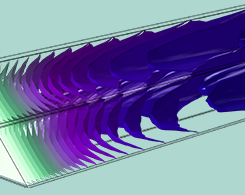
Modeling Surface Reactions in Porous Media and Reactive Pellet Beds
Reactive pellet beds have complex local geometries and undergo microscopic diffusion, but there is a way to simply and accurately simulate these devices in COMSOL Multiphysics®.
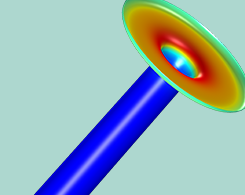
Pulsed Electrochemical Machining: A Multiphysics Model
Industries that manufacture metal parts are concerned with precision machining and quality of surface finish. Optimizing the pulsed electrochemical machining process can improve these factors.

Introduction to Modeling Surface Reactions in COMSOL Multiphysics®
Bioengineers and electrochemists will appreciate this detailed introduction to modeling surface reactions with the COMSOL® software.
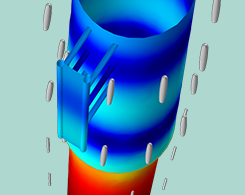
Model Electrodes with Nonideal Connectivity in Corrosion Analyses
Learn the appropriate boundary conditions for performing a corrosion analysis in which an electrode is connected to an external short circuit.
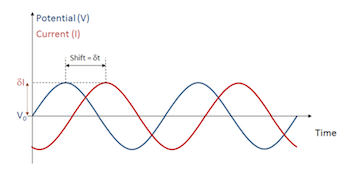
Electrochemical Impedance Spectroscopy: Experiment, Model, and App
Experience the phenomenon of electrochemical impedance spectroscopy (EIS) in 3 ways: experiment, model, and simulation application.
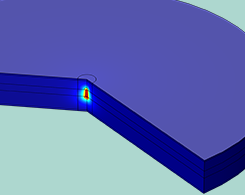
How to Model Short Circuits in Lithium-Ion Batteries
When the chemical energy stored in a lithium-ion battery is lost as heat, rather than being used to power a device, it is known as a short circuit. Learn how to model this phenomenon.
